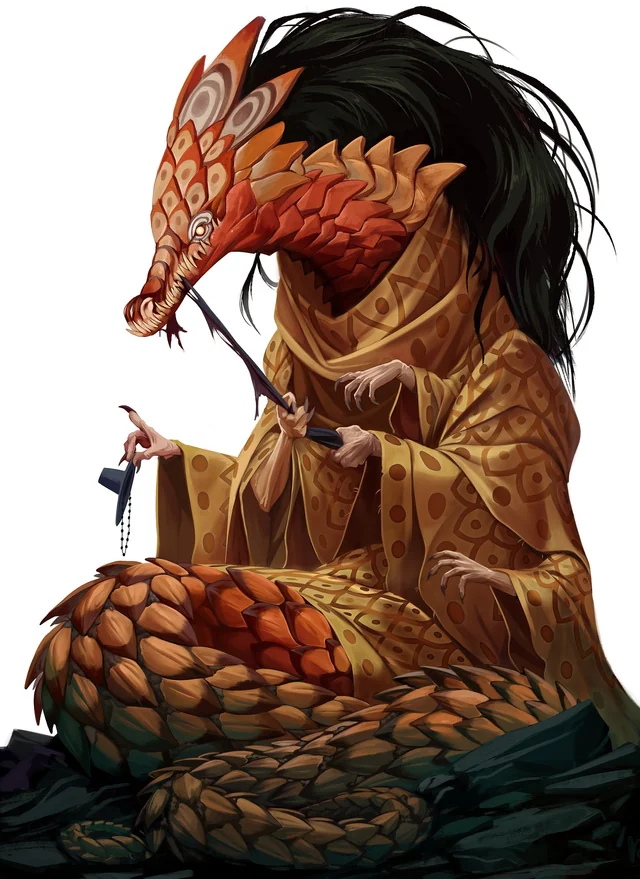I have complained about it before but I heard on of the guests from guerrilla history on the deprogram make this argument and it made me want to gouge my eyes out. This kind of trans historical argumentation is both stupid and unmarxist, just stop! Sorry I felt the need to vent.
These states were not imperialist and they weren't settler colonies. This framing doesn't make any fucking sense when transfered to a medieval context. Like the best you could say is that the Italian city states represented an early firm of merchant capital, but even then that is an incredibly complex phenomenon that has only a tenuous connection to modern capitalism. Calling these city states early capitalism is just a fancy way of saying "lol u hate capitalism yet you exchange good or service! Curious!"
Seriously just stop. I don't know why this set me off but it was like a week ago and I am still mad about it.
This happens because people confuse "imperial" (of empire) with "imperialist" (now referred to as late stage capitalism).
It really is that simple. It's a confusion because people think imperialism just means "when big countries do a thing I don't like to other countries".
It will only be countered with education on the difference between imperialism and imperial/empire at a massive scale.
the difference between imperialism and imperial/empire at a massive scale.
lol Leninists talk about finance imperialism, not "at a massive scale" whatever that means
I read her comment like this:
It will only be countered with education... at a massive scale.
No but you see, imperialism is when the government does stuff in other countries, the more stuff it does the more imperialist it is and if it does a real lot of stuff that’s colonialism.
Venice in Crete, the Teutonic Knights in the Baltics, the Reconquista, and the first Portuguese and Spanish explorers all viewed themselves within the context of the original Crusades. They all developed a sense of ethnic supremacy over the people living in the places previously. The conquered territories were resettled by Catholics, and the vast majority of resources extracted went back to the mother country. You can argue against it, but he can also have a point. It’s not something Dr Adnan Hussein had time to go into on a podcast where they talk about medical examinations of ball sacs.
You can only call it imperialism if it's made in the Imperi region.
If you are trying to argue continuity of specific phenomenon between timeperiods, then yeah it needs to be specific if you want to draw concrete informational value from the analysis. If you want to say all intergroup violence for some kind of gain throughout history is the same then yeah sure the crusades and modern imperialism are the same.
With peculiar, idiosyncratic definitions of words, we end up with empires without imperialism, and fascism without fascists. Maybe someone will soon propose communism that's independent of communists, or maybe they already have.
If one nation conquers another nation with the intention of fully integrating it into the former's economic, cultural, and political systems, rather than just being an ally or a tributary, is that too broad or too narrow of a definition of the process of an empire?
I wouldn't call the crusader kingdoms part of an empire but it's a lot more than simply "intergroup violence".
Not really sure what you are arguing? The crusader kingdoms in the Levant were trying to secure holy sites for pilgrimage as their primary goal and function at the outset.
The crusader kingdoms in the Levant were trying to secure holy sites for pilgrimage
That's what the aggressors claimed, and what the Eurocentric historiography still claims. Simple pilgrimages faced more of a threat from the sea and disease than from the Arabs- I mean, come on. Everybody knows they were out for conquest, which is exactly what they did. It was an outlet for non-inheriting nobles to expand into new lands, and a means of exercising dominance.
Does the definition of settler colonies not include the Teutonic Knights' conquests in the Baltic, or the gentry in the Danelaw?
The gist of my first response is that you're being pedantic by saying "actually it's not imperialism in the very specific way my preferred author defines that word". If it flies like a duck, eats like a duck, and fucks like a duck, we can categorize it in with ducks.
It was an outlet for non-inheriting nobles to expand into new lands
we can actually look this up and see the vast majority of participants did not stay or intend to stay, and those that did were not predominately 'non-inheriting'. this is one of those things that some guy just mused at one point and it sounds correct enough on the surface. but it's actually a wild proposition to assume a guy who will only inherit if his older brother dies would travel thousands of km instead of taking territory closer to home, or killing his brother
"Simple pilgrimages faced more of a threat from the sea and disease than from the Arabs"
Yes but those were accepted background things, the will of god. The disruption caused by the conquests in the east by the seljuk turks, not Arabs, was a very new, and controllable by human will, phenomenon.
"Everybody knows they were out for conques"
I am really sorry but the actual history of the crusades to the lavant doesn't support your supposition. It's also interesting that you cite my, and the current, scholarship as eurocentric when you are just parroting the old eurocentric view of the crusades as being this metaphysical clash of civilizations. The crusades to the Baltic and central Europe were definitely interesting, and part of a longer trend of germanic migration eastward that had been going on for centuries, and different from thise to the levant. The Reconqista could definitely be argued as an origin point for European colonial expansion, but thay was at best at the tail end of the crusading phenomenon, and many scholars would argue was a distinct social formation from the others. Sometimes a bird is a duck and sometimes it is a heron, just screaming loudly that it's the same because all birds are ducks doesn't make it true.
The nature of production and "economy" (which almost doesn't feel appropriate as a term) in medieval Europe was very different from later in the early modern period where we find the first manifestations of capitalism and colonialism and imperialism in our contemporary, Marxist sense.
The incentives are just different for the people involved in the crusades than that of settlers. Sure, in a superficial sense, there are similarities: some people from place go to another place and make war for their own gain. But when we break it down, the specifics of the incentive structure are different because they relate to different society and economy underpinning them.
The crusaders weren't going to the Levant or Egypt to establish a periphery with exploitable natural resources and labor to feed their manufacturing back home. Even if some of them moved there, they weren't quite doing it to settle either. These were already developed, wealthy places. The crusades were basically peer-conflicts. The European polities and Kings did not have the technology or infrastructure to subjugate in such a totalizing manner the people there.
It's difficult. There's a lot of things I want to express and touch on that give shape to the particular nature of the crusades as opposed to other wars of conquest or colonization. There's the religious aspect, which isn't just meant as a sort of basis for the crusades absent any material incentive, but that the Catholic Church was an immensely important and present force in the political (and personal) lives of the people who carried them out. Maybe the most important thing is that there was not capitalism and that the direct, important players of the crusades were not capitalists. The concept of reinvesting your surplus into more numerous, more productive, more intensive capital in order to expand ever-faster was not the way that kings were negotiating power then. The holy land was wealthy. It would provide a tax base, it would provide opportunity, it would provide glory, status, and legitimacy among peers and challengers. That's probably more along the lines of what the incentives for the crusades were for the nobility.
At least, this is a loose organization of some of my thoughts on the matter. There's more to say, certainly.
For me the fact that a majority of the big players in the crusades were already powerful individuals who effectively lost everything in their prosecution, exemplifies what you put so well.
The crusaders weren't going to the Levant or Egypt to establish a periphery with exploitable natural resources and labor to feed their manufacturing back home.
Yes, but that’s exactly what happened on the Greek islands after the 4th crusade. (Oremen and olives) That’s what happened in the Teutonic order in the Baltic crusades (farmers and food for German cities) that’s what happened in Spain and North Africa during the reconquista (these colonies exist today) what Spanish and Portuguese explorers did. (They viewed themselves as crusaders) This was between 1200-1500. This is the context a Dr and medieval historian is talking about and didn’t have time to get into.
that’s exactly what happened on the Greek islands after the 4th crusade
it's what happened in Crete under Venice but many others were seized as personal property of various italian/frankish lords, with an ambiguous relationship to the metropole & other latin authorities in greece. compare Negroponte or Naxos to Candia. direct rule from Venice was the exception, not the rule of the division of the empire.
farmers and food for German cities
really? i'd rather assumed they used their surpluses to fund their military expansion like the hospitallers, maybe sending money to the catholic church. any good books on them & the livonians?
They viewed themselves as crusaders
the reconquista bleeds right into real-shit colonialism at the end and at least i think it's pretty sloppy to try and put it in the same bucket as the first crusade because participants used some of the same words. even in the reconquista itself the things most characteristic of colonialism, the expropriation, ethnic designation and deportation of groups is at the very end when Granada folded. the christians didn't do that for 200 or more years of reconquista (depending when you say the reconquista 'started'). when Portugal took Ceuta they already had rounded the Cape, when Spain took Melilla America had been discovered.
Taking modern interpretations, standards, morals, etc. relating to the contemporary historical period then retroactively applying it to everything prior to the contemporary historical period in order to judge it as though it just happened last week - also known as lacking an understanding of historical materialism therefore understanding the past through the lens of 'presentism'
On my Hexbear?
Noo~ say it isn't so.
lacking an understanding of historical materialism
"all of history is class war between property owners and enslaved workers" (smug armchair redditors scoff) ok radlib
I think the crusades are an important "stepping stone" in developing later western ideals and had a lot of influence on imperialist ideas and desires, but you're right, they absolutely aren't imperialism or settler colonies.
I would argue the West as a concept really started with the crusades. Back then, everything was packaged under "defending Christendom," but from the way they mistreated Christians from the east, cultivating in the sacking of Constantinople, it's quite clear they didn't actually care about Christendom in the sense of the global community of Christians but only a certain type of Christian.
Keep in mind we are talking about a material historical process that lasted hundreds of years and then effectively died out several hundred before the material advent or European empires, which in turn reinterpreted and repurposed the history of the crusades for its own ideological justification. If the crusades created the concept of a unified conception "west" it sure didn't keep Europeans from creating hundreds of political formations to better kill each other over the next thousand years.
They were at best used as an inspiration in a very anachronistic way. The one place you could say the medieval idea of crusade blended into the modern concept of colonization was through Spain and the reconquesta. But that movement was very different, and had many different material and ideological factors driving it, than the medieval crusades to the holy land.
Yeah, I don't mean in any sort of 1:1 sense, but an idealised (or anachronistic) view of the crusades was often used to justify later colonial efforts and to create distance between the west and the rest of the world. It was a process taking place over centuries, capitalism didn't emerge from nowhere, it came out of late feudal attitudes and ideas, and late feudal ideas were inspired by earlier feudal ideas. History is complex and multi-faceted, and historical events bleed into and cause each other. I would go so far as to say that if the crusades hadn't existed and Christian Europe had sought peace with the Muslim world instead, capitalist imperialism as we understand it likely wouldn't exist.
wrong. your comment is actually imperialism, crusader scum
Death to America
Wait are you saying imperialism didn't exist before capitalism because imperialism is the highest stage of capitalism? That is incredibly backwards
So is it just in relation to medieval Italian city states? Idk about that history.
You said they're not capitalist, they're like proto-semi-merchantile (yeah I would agree) but that's the only reason you cite that they weren't imperialist. Hence my confusion. Or Shoot me a link, I'm a reader
the territories in the outremer weren't imperial because they weren't part of the european 'states' which had no realistic capacity to extract resources or protect them. the italians didn't rule the crusader states, just had trade concessions in them, which is the most-like imperial bit of the affair, but because the italian presence was just quarters of some cities it's not a good characterization for the entire group of states. they were primarily an imported nobility ruling a medieval territory in the normal way.
Thanks for the explainer, funny how people confuse bog-standard military-political maneuvering with imperialism, def something to look out for then.
I don't remember them making any of these points, but maybe I just wasn't paying attention
It was probably a throw away line but I stopped listening because I have a problem.
I stopped listening to the "Revolutions" podcast 100 episodes in when during a Q&A the host (Mike Duncan I believe his name is) said in response to a question about his politics that he doesn't subscribe to Marxist interpretation of history. I have no idea why that statement, which I already knew to be the case (from the way he covered history and spoke of figures like Lafayette, the king(s) of England, etc.) set me off, but it did. It's unrealistic for me to expect every historian to view things in a Marxist way. Almost all of them are liberals whether because of the convictions or self preservation.
Well anyway, I can identify with and share this irrational reaction to podcast shit.
I like Mike Duncan but yeah he can be a bit silly. From his own definition of marxism he really doesn't understand what it is let alone how dialectical materialism works. Interestingly enough he does seem to have an instinctual grasp of how a marxist would more formally analyze history, which maybe is why I have always liked him. The fact that heist conscious of what he is doing though leads to some incredibly painfully lib takes.
I completely stopped watching the most left wing satire show in German TV, Die Anstalt, because they brought up “forced expropriations” under Stalin when covering the Ukraine War. My brothers in Christ, have you ever seen a “voluntary expropriation”*? You arseholes argued for the expropriation of Deutsche Wohnen etc. before, do you think they’ll just hand over 100,000 apartments because you asked nicely? It’s good expropriation when we do it but “forced expropriations” when they do it. There was other fuck ups in terms of bad historiography (like categorising the “holodomor” as a genocide even if the source they listed literally contradicts that classification) but not understanding your own ideology to such a degree is just irredeemable to me.
*Fidel doesn’t count, he’s different.
Yeah for some reason it bugs me more when an amateur like Mike goes out of their way to say they don’t subscribe to Marx versus an actual pro like Sheila Fitzpatrick (the later, though she is explicitly not a Marxist historian has done a lot of good Soviet history and was a pioneer in explicitly saying it’s ridiculous to compare Nazi Germany and the USSR, like how so many of her contemporaries wanted to do).
A lot of people are smug in these replies about presentism, but the thing is that an analysis of the crusades as a such a project is the newtonian physics of history. It gets you to the right conclusion in 99% of cases even if it isn't technically accurate.
It is a bad take and it is infuriating to behold because if we actually want to have earnest conversations about either subject we shouldn't be conflating them. Pointing out similarities is one thing. Implying sameness is another.
You're right. Subjugation of one state by another state does not equal imperialism. Imperialism is a specific phenomenon unique to global capitalism. I know a lot of Leninists will disagree with this, but in fact, one could argue that imperialism is not merely a stage of capitalism, but integral to it's existence as a global system. Thus imperialism can be defined as “precisely the amalgamation of the requirements and laws for the reproduction of capital; the social, national and international alliances that underlie them; and the political strategies employed by these alliances”. I'll just let Samir Amin explain further:
The modern global system of actually existing capitalism has always been polarizing by nature, through the very operation of what I call the ‘globalized law of value’, as distinct from the law of value tout court. In my analysis, therefore, polarization and imperialism are synonymous. I am not among those who reserve the term ‘imperialist’ for types of political behaviour designed to subjugate one nation to another – behaviour that can be found through the successive ages of the human story, associated with various modes of production and social organization. My analytic interest is anyway geared only to the imperialism of modern times, the product of the immanent logic of capitalist expansion.
In this sense, imperialism is not a stage of capitalism but the permanent feature of its global expansion, which since its earliest beginnings has always produced a polarization of wealth and power in favour of the core countries. The ‘monopolies’ enjoyed by the cores in their asymmetrical relations with the peripheries of the system define each of the successive phases in the history of the globalized imperialist system [...]
Imperialism, from its sixteenth-century origins to the Second World War, was a plural phenomenon; permanent, often violent, conflict between different imperialisms played an important role in shaping the world. In this respect, the Second World War ended with a major transformation, since a collective imperialism of the ‘triad’ (USA, Europe, Japan) then replaced the multiplicity of imperialisms.
- Samir Amin, Beyond US Hegemony? Assessing the Prospects for a Multipolar World
transfered to a medieval context
Baby Gronk (ages 10-12) has nothing to do with Baby Gronk (ages 14-18)
incredibly complex phenomenon
liberals when they have to whitewash the extremely simple and obvious economic relations under Zionism lol
















